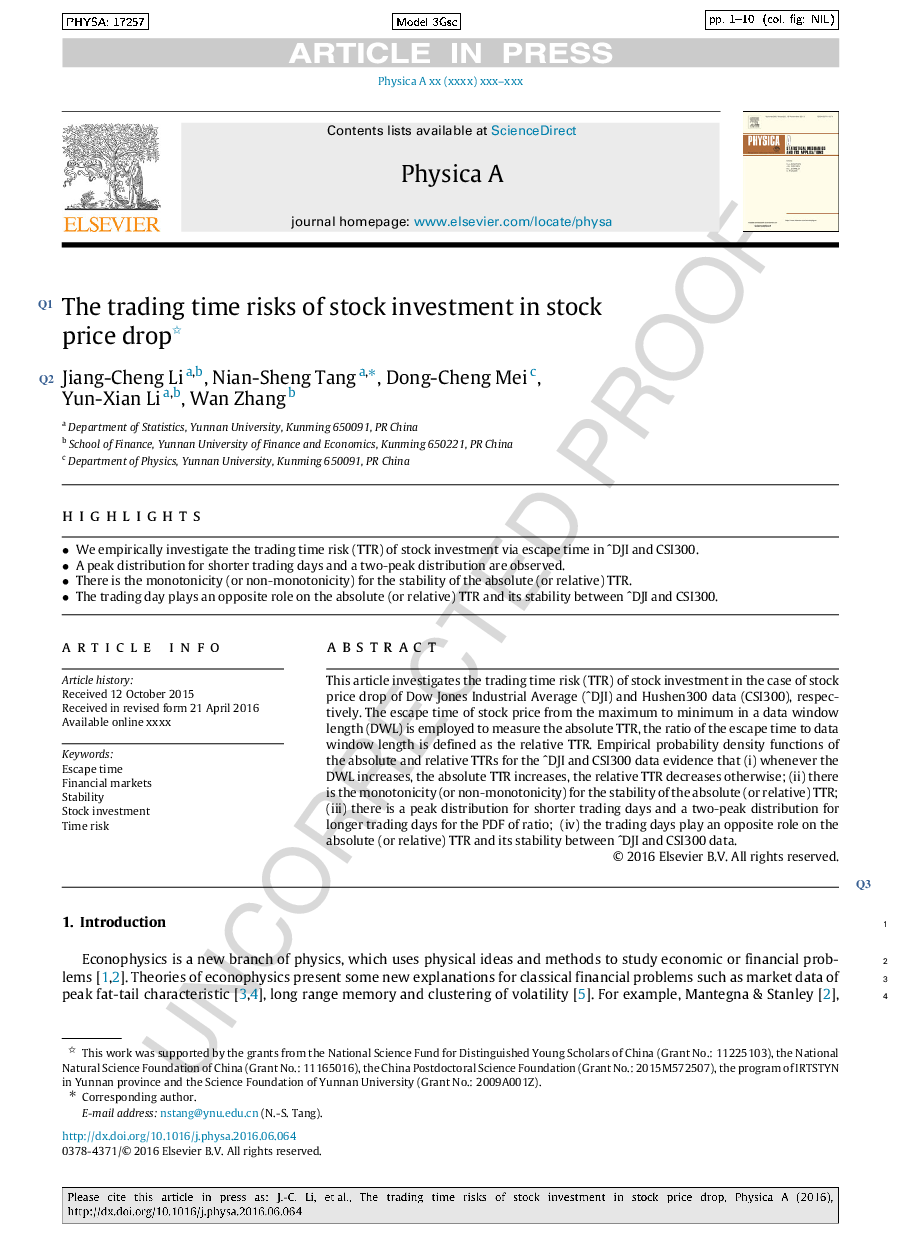| Article ID | Journal | Published Year | Pages | File Type |
|---|---|---|---|---|
| 7377082 | Physica A: Statistical Mechanics and its Applications | 2016 | 10 Pages |
Abstract
This article investigates the trading time risk (TTR) of stock investment in the case of stock price drop of Dow Jones Industrial Average (ËDJI) and Hushen300 data (CSI300), respectively. The escape time of stock price from the maximum to minimum in a data window length (DWL) is employed to measure the absolute TTR, the ratio of the escape time to data window length is defined as the relative TTR. Empirical probability density functions of the absolute and relative TTRs for the ËDJI and CSI300 data evidence that (i) whenever the DWL increases, the absolute TTR increases, the relative TTR decreases otherwise; (ii) there is the monotonicity (or non-monotonicity) for the stability of the absolute (or relative) TTR; (iii)Â there is a peak distribution for shorter trading days and a two-peak distribution for longer trading days for the PDF of ratio; (iv) the trading days play an opposite role on the absolute (or relative) TTR and its stability between ËDJI and CSI300 data.
Related Topics
Physical Sciences and Engineering
Mathematics
Mathematical Physics
Authors
Jiang-Cheng Li, Nian-Sheng Tang, Dong-Cheng Mei, Yun-Xian Li, Wan Zhang,
